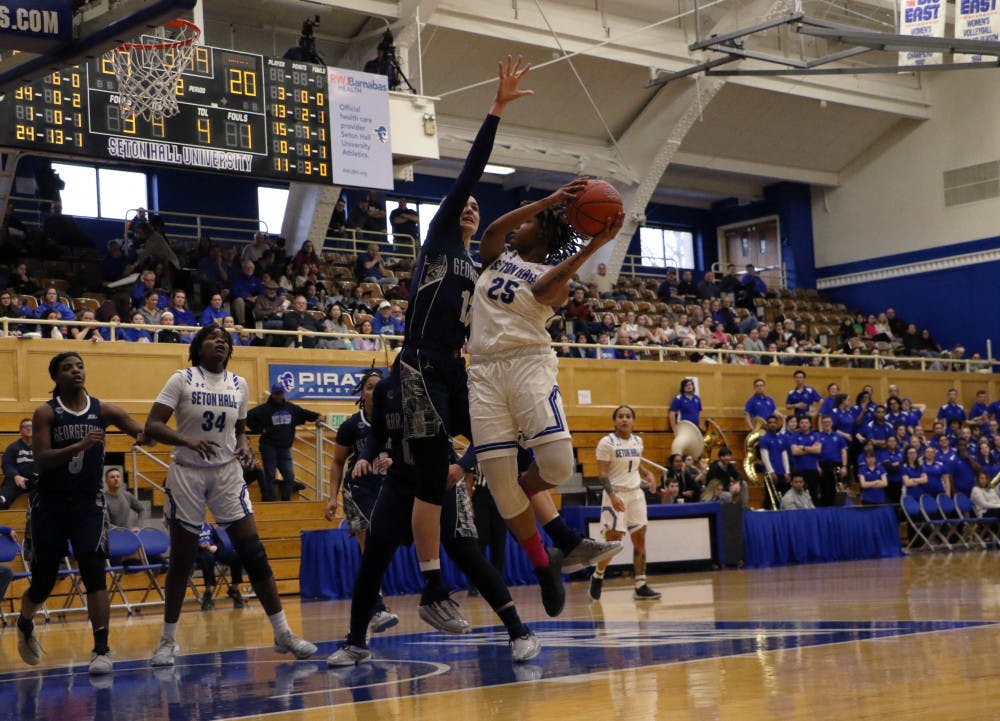
Anna Griffin/Staff Writer
Many students consider sleep deprivation something that comes with the territory of juggling school and other responsibilities. However, it could have serious consequences on students’ long-term health.
According to the National Sleep Foundation, the average adult requires eight to nine hours of sleep a night. However, Diane Lynch, assistant director of Seton Hall’s Health Services, said that number can vary from person to person.
Lynch said that it is important for students to do a “self-assessment” to determine how much sleep they need, based on their daily workload and stress.
For some students, the problem is not knowing how much sleep they need, it is not being able to get sleep because of other responsibilities.
Senior Victoria Crozier said that she has “other responsibilities that go before sleep.”
Similarly, junior Megan Chase said that “school work and work are more important,” than getting a full night’s rest.
While sleep may be relatively unimportant to college students, it is crucial to maintaining physical and mental health.
Lynch said that the “biggest problem, physically, is that you are more likely to get sick, especially on a campus, where viruses can circulate quickly.”
Where mental health is concerned, Lynch said that stress that normally is easy to handle could become “crushing,” leading to mental exhaustion.
The National Sleep Foundation also warns against the dangers of “sleep debt,” which is when a person tries to make up for not sleeping by drinking caffeine and eating sugary snacks to stay awake. This type of compensation can result in weight gain, which Lynch said can get more and more difficult to handle when everyday stress is added.
However, Lynch says that sleep is something of which students can take control. Avoiding caffeine at least two hours before bed, resisting the temptation of playing on any electronic devices and listening to soothing music or reading a boring book can help you fall asleep easier. Keeping a “Sleep Diary,” ideas for which can be found on the National Sleep Foundation’s website, is also a good way of measuring how much sleep you need and becoming aware of your sleeping habits.
Elena Vitullo can be reached at elena.vitullo@student.shu.edu.





